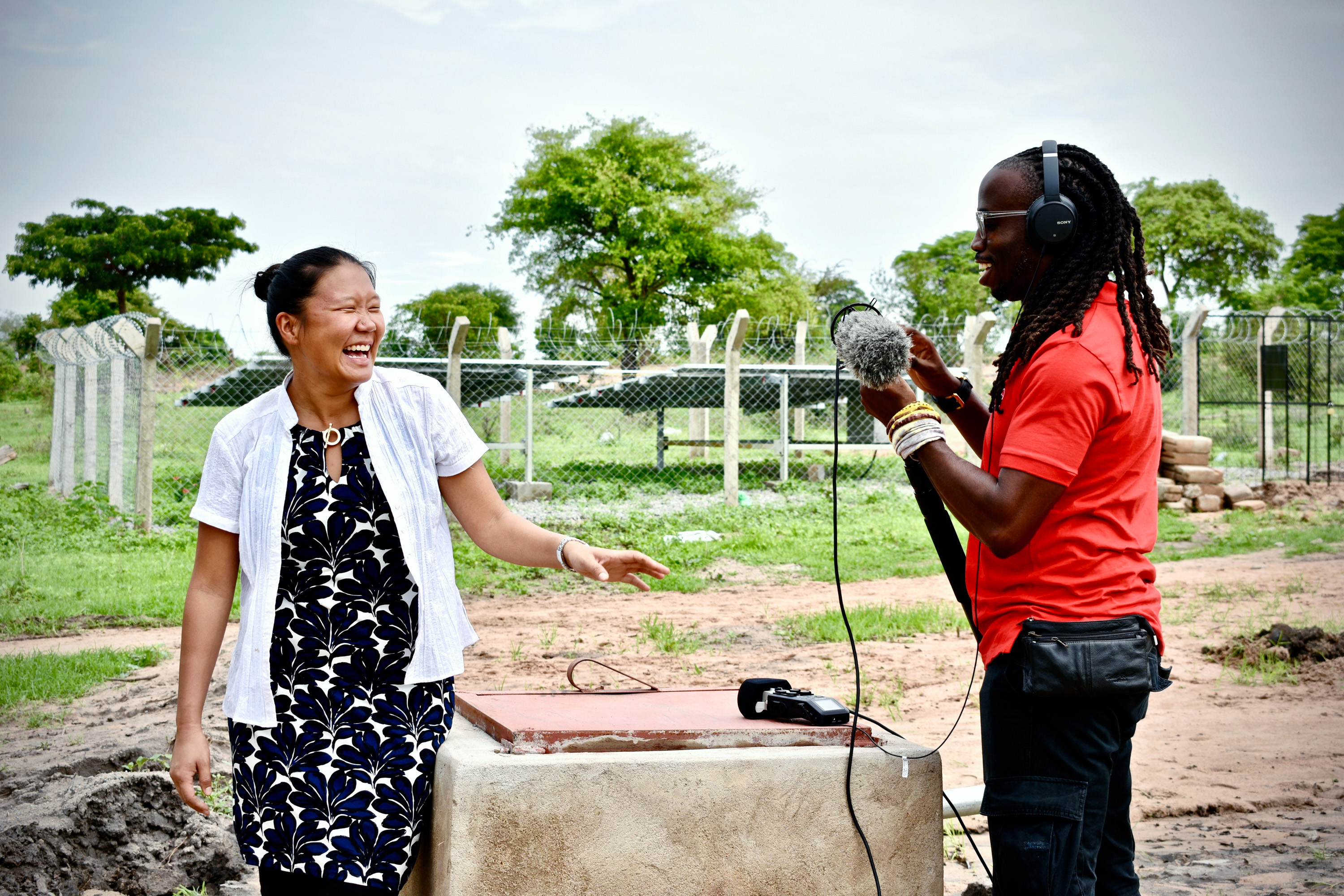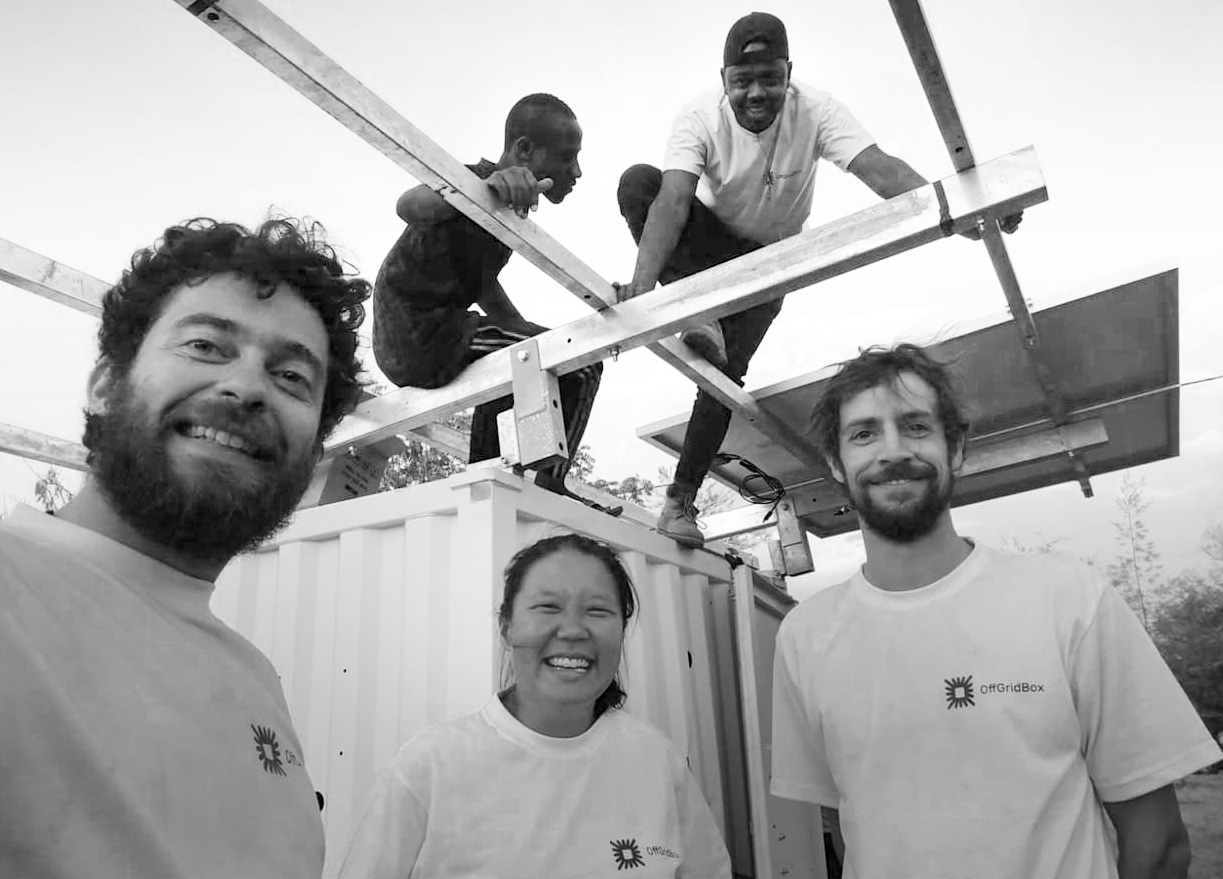
When she started her junior year after a corporate internship that left her feeling unfulfilled, Jodie Wu ’09 was questioning her path as an engineer. Participating in a D-Lab class project in Tanzania revealed a way to use her passion for engineering to help serve emerging markets in Africa while also having an impact.
Wu recalls being naïve the first time she traveled to Africa: “As a student, you think you can save the world in three weeks.” But during that visit and several return trips through the MIT Priscilla King Gray Public Service Center, she started to understand the scope of problems faced by rural communities there—problems she is still trying to tackle more than a decade later.
Now based in Rwanda, she is COO at OffGridBox, a Boston-based startup whose all-in-one system uses energy from solar panels to charge batteries and purify water. Its customers include NGOs, businesses, farms, schools, hospitals and clinics, and homeowners.

After graduation, Wu ran Global Cycle Solutions, which she’d founded to bring a bicycle-powered maize sheller to smallholder farmers in Tanzania after winning the business plan portion of the MIT $100K Entrepreneurship Competition. “The part that impressed me most about Tanzania was how people could have so little but be so generous,” she says. “And I stuck with it because I love the fieldwork. Some people might think, ‘Oh, bucket showers, car breakdowns—it’s hard work,’ but for me, I’ve always taken it as adventure.”
As Wu traveled to rural areas trying to sell her maize sheller and became fluent in Swahili, she learned that solar-powered products were in high demand in these communities. She shifted Global Cycle Solutions to distributing solar lights before selling the business in 2017.
Wu joined OffGridBox because the startup’s solar-powered system—which is contained in one 6x6x6-foot shipping container—appealed to her as a sustainable, affordable solution for developing economies and remote locations lacking electrical infrastructure. The benefit of the boxes has become especially clear during the pandemic: the company was awarded funding through the USAID Power Africa Opportunities Program to electrify six government health centers, which serve thousands of patients a month.
Wu says these centers previously had insufficient power, especially to support vaccine refrigerators, sterilizers, and infant warmers. Now they have power 24/7. “OffGridBox helps nurses and doctors save lives,” she says. “With close to 60% of sub-Saharan Africa’s health-care facilities lacking access to electricity, there is plenty more work to do.”
Keep Reading
Most Popular
Large language models can do jaw-dropping things. But nobody knows exactly why.
And that's a problem. Figuring it out is one of the biggest scientific puzzles of our time and a crucial step towards controlling more powerful future models.
How scientists traced a mysterious covid case back to six toilets
When wastewater surveillance turns into a hunt for a single infected individual, the ethics get tricky.
The problem with plug-in hybrids? Their drivers.
Plug-in hybrids are often sold as a transition to EVs, but new data from Europe shows we’re still underestimating the emissions they produce.
Stay connected
Get the latest updates from
MIT Technology Review
Discover special offers, top stories, upcoming events, and more.